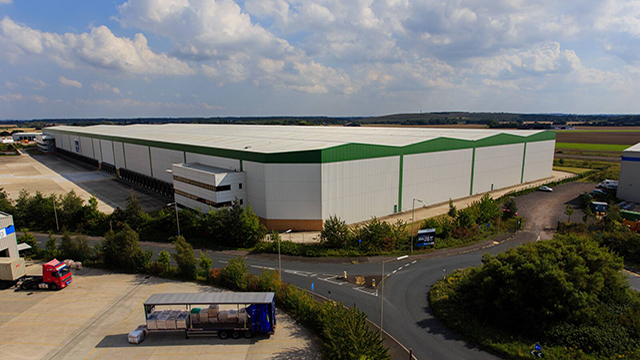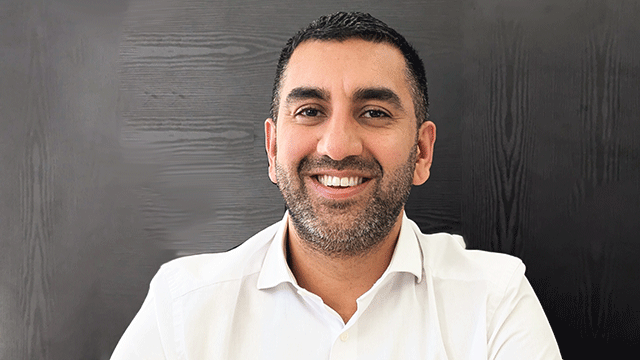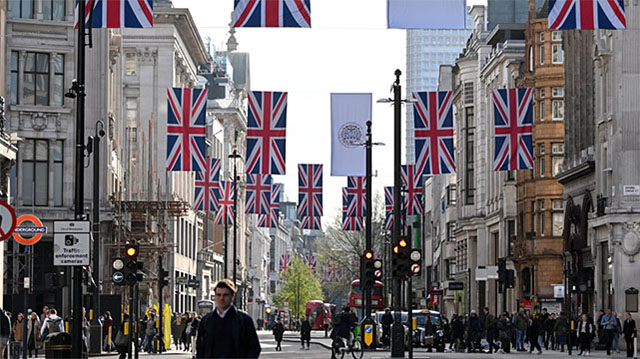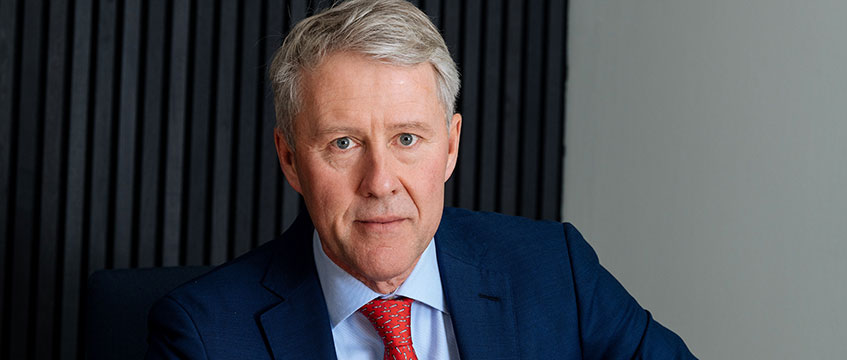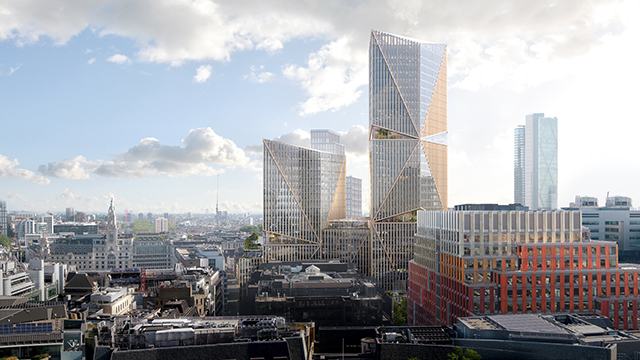“I deal with London 2012 all day, every day. I go to sleep at night thinking about it. I wake up in the morning thinking about it. Every single moment of every single day is filled with this”
With less than two weeks to go before the start of the so-called Greatest Show on Earth, Olympics minister Hugh Robertson is a busy man.
In the past week his diary has included helping make a final decision about where Olympic ground-based air defence systems will be sited, refusing an entry visa for Syria’s national Olympic Committee chief, General Mowaffak Joumaa, and appearing in various radio and television newsrooms urging Brits not to skive off work to watch the Games.
What’s more, the former head of new business development for Schroder Investment Management’s property division and land management graduate from the University of Reading has plenty to think about in overseeing the Olympic property legacy.
This week, Robertson was on hand to help the London Legacy Development Corporation in its final deliberations over finding tenants for the final two Olympic Park venues: the 1m sq ft media centre and the 80,000-seat Olympic Stadium.
“There are eight venues on the park,” says Robertson. “No other host city has got six out of eight let at this stage in the process. By the time the Games start we’ll have seven out of eight let, I’m pretty sure.”
The 49-year-old MP for Faversham and Mid Kent replaced former Olympics minister Tessa Jowell at the last election as the senior politician with responsibility for government decisions over the Olympic Games. However, much of the responsibility for the day-to-day running of the Games has now been passed to London mayor Boris Johnson.
This week, the LLDC was locked in final discussions to choose between two preferred bidders to take the Olympic media centre after the Games finish – Resolution Property’s UK Fashion Hub and the frontrunner, the Infinity-backed technology project dubbed iCITY.
A board meeting next week will select one or the other, or perhaps even the nuclear option, to demolish the whole thing – despite a cost of more than £300m of public money.
When asked whether the Olympic authorities had given up on finding a bona fide media tenant, Robertson sighs.
“Given up is probably too strong but there you are,” he says wearily. “Like with any property deal there are two preferred bidders and those are the two bidders that are progressing. As of today, I would confidently expect one of those bids to win,” he says.
“The Olympic Park Legacy Company ran a process. Coming out of that, they got three bids. Now they’re reduced to two. They can only deal with people who bid for it. There are all sorts of buildings that all sorts of your readers would sit down and think, it’d be really nice to have X, Y or Z in it. If X, Y or Z doesn’t want to be the tenant, they’re not going to get into that.”
Robertson frames his words carefully, mindful of the problems he encountered when attempting last year to find a tenant for the other Olympic Park venue yet to find a long-term legacy occupier, the Olympic Stadium.
Last October, a deal to sell the venue on a long lease to preferred bidders West Ham United and Newham council finally collapsed after months of legal wrangling. The government pulled the deal just a week before a judicial review into whether West Ham’s agreement with the council breached state aid rules was due to take place.
“We’ve been judicially reviewed once over the stadium. We nearly got to the high court. It’s enormously time consuming. I’ll be quite keen not to do it again,” Robertson says.
Overcoming the hurdles
So was the initial Olympic Stadium bid process a fiasco?
Robertson says no. “I think the process that we’ve undergone with the stadium was just unavoidable. The problem that you normally have with Olympic stadia is that nobody wants to occupy them. We had the reverse problem in that we had two big, viable Premier League football clubs – both of which wanted to get in and both of which fought each other and us for the right to occupy that stadium.
“Now, I think to say that’s a fiasco when you have more people that want to go in than you have room to do so is probably not fair,” he says.
“Football is extremely litigious and when you had two big football clubs both wanting to gain access to the stadium, whichever one lost out was going to look at the process and all the reasons why, and I think it was inevitable.”
Final line-up
As Estates Gazette went to press, a new shortlist of final bidders for the stadium was due to be announced. This is likely to include West Ham (bidding without Newham council this time), rival football club Leyton Orient, a joint venture between the University of East London and Essex County Cricket Club, a Formula One bid from Intelligent Transport Solutions and a bid from Bucks New University to open a University College of Football Business.
Robertson is also firm that the government’s decision was correct last year to spurn a £1bn bid from medical charity The Wellcome Trust. Wellcome hoped to take over the entire Olympic Park as a centre for science, technology and innovation once the Games had completed. But instead the government opted to sell the venues off piecemeal.
“In terms of the Wellcome Trust offer, our contact should remain confidential, but we had to take a judgement over what was best for the UK taxpayer and the long-term legacy of the park, and there was no doubt in my mind, having seen all those bids, that we took the correct decision.”
Instead, the Olympic Delivery Authority opted to retain the freehold of the Olympic Park and accept a £557m offer from Qatari Diar Delancey for the 1,439 private homes comprising the private element of the Athletes’ Village.
Bringing hosts into play
So how is the government ensuring that the Olympic regeneration effects spread beyond the 500-acre Queen Elizabeth Park?
“Everybody’s very aware of that issue and determined to make sure [that regeneration spreads out to all of east London],” says Robertson.
“If we were going to have a bubble of very expensive private housing in the middle of an area that wouldn’t normally be associated with that sort of thing, we would have just flogged the whole lot off to QDD and we would not have sold as much of it as we did to Triathlon Homes.
“The answer to your question actually lies in the fact that the OPLC no longer exists and has become the London Legacy Development Corporation, precisely so that it doesn’t just concentrate on the park, but it integrates that into a wider community,” he adds.
“The OPLC was an organisation owned by a series of stakeholders, of which central government is one. The LLDC is solely owned by the mayor, precisely so that it has that focus of integrating the project into the wider community. By being focused at a mayoral level, that brings into play all the five host boroughs.”
Building on the benefits
Robertson argues that the beneficial effects of the Games are spreading out to the property industry, too. “London 2012 has been the most fantastic calling card for the skills of the British property and construction industry,” he says.
“The property and the construction industry are two of the most natural beneficiaries of this whole process, because if there’s one thing that encapsulates what London 2012 has given us, it’s that if you look back to 2002-03, it was all about the Dome, Wembley and Pickett’s Lock.
“Now, we’ve got the largest construction project anywhere in Europe delivered on time and to budget. That is a huge calling card for the British property industry. Almost wherever I go internationally now, I see firms of British architects, British surveying firms out there pitching to win business on the back of what’s been achieved on the Olympic Park.
“I hope that because of what we’ve achieved in London 2012, they will be able to pitch for business in future Olympics, future World Cups, future European Cups. Whenever people around the world are looking at developing sports facilities and developing stadia, they will think British firms,” he adds.
But for Robertson, the future after the Olympics looks a little less clear. After 2015, the minister’s constituency is set to be abolished and reshaped as Tonbridge and Malling.
“The Olympics has been my life for eight years, in opposition and then in government. Post-2015, I’m out of a job. So at the moment, I really don’t know what I will do after the Games.”
Robertson’s property background
Hugh Robertson was born in October 1962 and educated at The King’s School in Canterbury. He studied land management at the University of Reading from 1982 to 1985 and went on to serve in the Life Guards until 1985. From 1995 to 2001, he worked for Schroders reaching the position of head of new business for the property division. He was elected to parliament in 2001 and became minister for sport and the Olympics in 2010.
Robertson says his property background has helped him in his ministerial role. “It helps you to understand planning,” he says. “When I look at plans, it’s not the first time I’ve looked at a masterplan for an area. When I was at Schroders we worked on regenerating Bracknell town centre so quite a lot of this is familiar territory and that’s been very useful. When the OPLC laid out the masterplan for the Olympic Park, I put my glasses on and started to have a look at it. And it really means something to me perhaps in a way it wouldn’t to people who didn’t have a background in it





